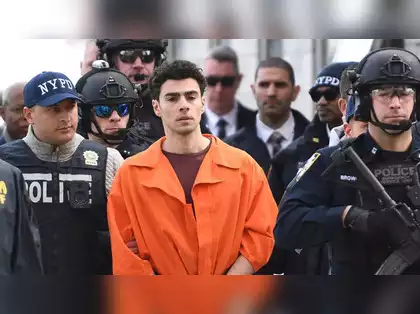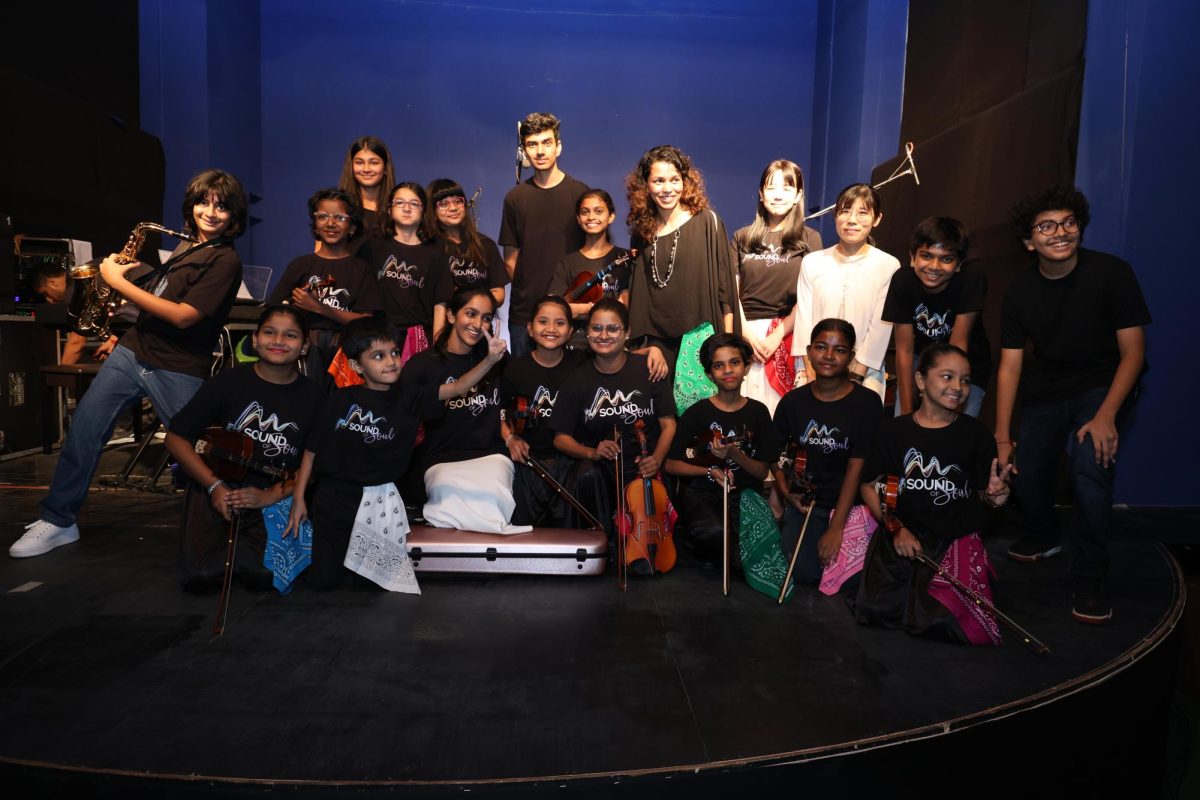Last month, lining up almost perfectly with its 1 year release anniversary, Laapataa Ladies won a staggering 10 awards at the International Indian Film Academy Awards (IIFA). As big fans of the film, we spoke to Ascend parent Kiran Rao to delve into the film’s journey and message. The full interview can be found on our YouTube channel @theascentnews or through the link below.
So what was it like, Ms. Rao, Winning so many awards at IIFA?
It was fun. Actually, it was quite gratifying because I think my whole team was there and having everyone on stage with me, or even those in the audience just felt like we were sharing the limelight together. In the previous months it had just been me traveling and doing the screenings for the Oscar committees and things like that, and this time it felt really like a team, so it was a very special one.
What was it like working with people who aren’t really established in the film industry as the leads of your film?
Well, it was a very deliberate choice. There’s, I’m sure, lots of established actors who perhaps would have done a wonderful job as well. But we really saw this film being played out in a way that was very fresh. That was very immersive. And, in a way, the actors would really make everything believable for you. And so casting very close to the characters in the film was a choice, yeah it was very much one of our creative decisions.
What drew you to the screenplay originally?
So the original was by Biplab Goswami, and what drew me to that story automatically was just the promise of adventure. You know, these two young women at the cusp of adulthood or just becoming adults, what they would go through if they were suddenly lost in the middle of nowhere. And how that could actually end up being a great opportunity for both of them. I love road movies. It’s one of my favorite genres. I love the idea, actually, of getting lost, of people inadvertently finding their way or finding the truth or realizing something that they never thought that they would.
With Laapata Ladies, it seems like you’re trying to bring attention to the dichotomy of an empowered woman. Were there any specific moments in the film that were reflective of your own experience trying to balance a family as well as your work?
There are lots of moments like that. I think I didn’t have any of those sorts of challenges that, say, Jaya had, when I was setting out, because, in my background, education was encouraged. But I can understand that being really frustrating for a person who wants to study, who is entrepreneurial like she is, who wants to make something of her life. So I didn’t have that. I think what you were saying earlier about how empowerment isn’t just a one-size-fits-all formula, right, it’s actually being able to realize what makes you live your life more fully without all the sort of restrictions that society will have on you.
Do you think that female filmmakers in India still have to work harder to prove themselves compared to their male counterparts? What has your experience been like trying to establish yourself in an industry that’s notoriously known as an old boys’ club?
I have to say that I feel like the Indian film industry, if you look around, we have a lot more participation of women at every level than, say, any other industry in this country. Having said that, for women to make their way up or forward in pretty much any industry is hard and has always been traditionally hard because we have traditionally not been seen as leaders. We’ve traditionally not been seen as people who give orders. And that has happened to me as well when I was early on in my career and I was an assistant director.
I think most producers look for a driven, passionate director with a good story. And don’t think that they’d be put off by gender. Often, people look at your past work, and sometimes, I really think that there is that old boys club. They would like a man to be directing, say, an action film. They’d be like, “No, a man would be better to do this violent, whatever, swashbuckling thriller.” So I see those kinds of gender stereotypes when it comes to “the woman would be great at drama, she’d be good at comedy.”
How do you balance telling these raw and realistic stories about experiences that a lot of women have in India, but then also make sure that the audience is going to receive them well?
The idea and the intention really were to make a film that would break the clutter, but also reach out and speak to as many people as possible, because we needed the intention of maybe moving the needle in this gender conversation. I think it started with having a great story. I feel like you can’t talk to people unless you actually have something exciting and interesting to say.
From Biplab’s screenplay, we took the original story, which did not have as many twists and turns and characters, and we added all of that as flavor, as plot points, and lots of different hurdles for each of the characters to surmount. And that makes for an interesting story. That is what commercial filmmaking is: you give people a ride and you take people on a journey with you. The idea was like, how do we do both? How can you make a very mass appeal film, but also not make it, you know, like a leave-your-brains-at-home film?
One of the characters that probably displays that the best is Ravi Kishan’s character, Inspector Manohar, because he has all these comedic scenes, but by the end of the movie, he’s grown to appreciate Jaya’s struggle. What was the message you were trying to send with his character?
That is a very interesting story, that journey of Ravi Kishan’s character, actually. In the original story, for instance, Biplab’s story, he didn’t exist. There was no policeman. In Sneha [Desai]’s version, she wrote this, Inspector Manohar, and she wrote him like this kind of detective, who likes, he’s a fan of, say, Satyajit Ray’s Feluda. And so Manohar was actually a result of Divya Nidhi Sharma’s writing. I wanted him to be the everyman corrupt guy, not the bad guy that you want to instantly kill off. Because there are too many of these kinds of people in our lives actually. He’s everyone, right? In India, everybody’s on the take. Everybody is doing what they need to do to get ahead. And we wanted to show that there’s potential if you want to do it, there’s potential to do the right thing at the right time.
Why did you decide to set the film in this stereotypically northern region?
I chose not to set it in any specific place and to create my own state, which was called Nirmal Pradesh, because I feel like the issues, the kind of challenges that women face, are certainly not restricted to any one region. Nirmal Pradesh becomes emblematic of the whole of India. It’s a small version of anywhere. Girls could be going through this in any place. The idea was to make it a little more to not point fingers necessarily at any one community or anyone, state, or any one culture, and to situate it in the world of ideas.
What sort of themes and genres are you interested in experimenting with in your future work?
My next project is actually quite exciting for me. It’s something that I feel very deeply about, and it’s the way we treat our environment. It enrages me, the way we are and how we choose to live like this, and we continue to make these mistakes that are going to have grievous consequences for us. I would like to call it climate horror because climate change is a result of this Anthropocene era and Anthropocene activities. It’s like a supernatural thriller that also looks at the hazards and the downfall of human-induced disasters.
Is there any advice you have for teenagers or high school students who are interested in learning about films and filmmaking?
I would highly recommend just getting on different kinds of platforms where people are discussing films, listening to different perspectives on film. Of course, watching as much as you can, I’m a big proponent of watching a variety of kinds of films before you absolutely decide what kind of things you make. I’d say it would be great to keep tapping into what moves you.
Sometimes you don’t realize what to write initially and feel, oh, this is never going to be good enough. It slowly snowballs into something, and you realize you started with a kernel of truth, and that kernel of truth you lose when you overthink it. So listen to your instincts more than anything else because sometimes, you try to be clever, you try a hundred other things. But when you’re being very honest, and you listen to yourself and what you really want to say, that often becomes your best work. Yeah, it becomes something that you really want to make or you’re proud of making. So keep writing those ideas down and keep building on all these tools that refine your own voice, and that make you the individual you are.








